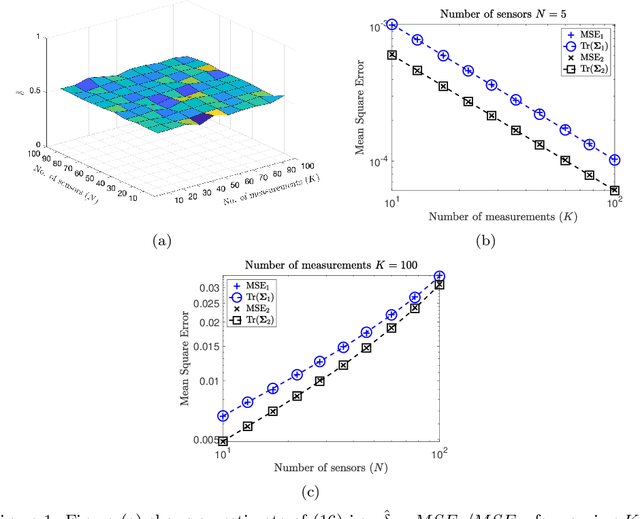On the choice of reference in sensor offset calibration
Paper and Code
Dec 25, 2022
Sensor calibration is an indispensable feature in any networked cyberphysical system. In this paper we consider a sensor network plagued with offset errors measuring a rank-1 signal subspace where each sensor collects measurements under additive zero-mean Gaussian noise. Under varying assumptions on the underlying noise covariance, we investigate the effect of using an arbitrary reference for estimating the sensor offsets in contrast to the mean of all the unknown sensor offsets as a reference. We show that the mean reference yields an efficient estimator in the mean square error sense. If the underlying noise is homoscedastic in nature then the mean reference yields a factor 2 improvement on the variance as compared any arbitrarily chosen reference within the network. Furthermore when the underlying noise is independent, but not identical, we derive an expression for the improvement offered by the mean reference. We demonstrate our results using the problem of clock synchronization in sensor networks, and present directions for future work.
 Add to Chrome
Add to Chrome Add to Firefox
Add to Firefox Add to Edge
Add to Edge